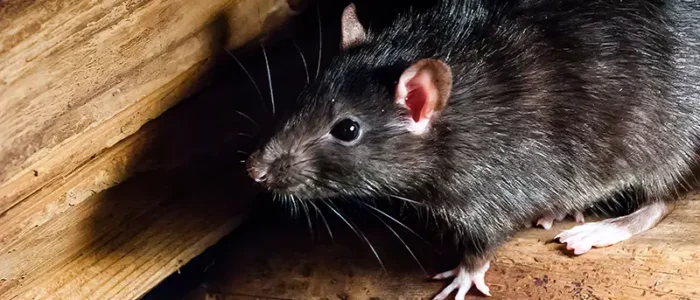Pretty much no matter where you are, the most common rodents you’ll find are mice and rats. These critters have always followed humans around in their search for food, so wherever people are, you’ll find them too. South Carolina is no exception.
Rodents contaminate food and generally make your home or business feel unclean. They can also spread disease, as they usually carry fleas or ticks that can infect humans; they can transfer disease through bites, too, though this is less common.
The professionals at Gregory Pest Solutions are here to help you identify and deal with your pest problem before it gets out of hand!
Signs of a Rodent Infestation
Even if you don’t see them in person, there are a few signs you might find around your home that indicate a rodent problem. Below are a few things to look out for.
- Chewed wires, walls, clothing, furniture, etc. Mice and rats have to chew to maintain their constantly growing teeth. They also like to take pieces of soft material to build their nests.
- Food caches. If you’ve ever moved a piece of furniture and found a strange pile of your pet’s kibble underneath, it was probably the work of a rodent. They like to store food in places that aren’t likely to be disturbed.
- Droppings. This is an easy one. If you find small, slightly cone-shaped droppings hidden around your property, it’s a strong indication that there are rodents around.
- Scratching noises in walls. If you listen carefully at night, you might just hear your unwelcome guests scratching around.
What Can I Do to Prevent Rodents?
Even before calling an exterminator, there are a few simple things you can do to make your home or business less appealing to rodents of all kinds.
- Pick up trash. If you leave easy food lying around in the open, it’s likely that rodents will set up shop nearby.
- Keep food (yours and your pet’s!) sealed in airtight containers. Pet food is an easy target if left in its original box or bag. Consider a bin with a locking lid to discourage rodents.
- Fix plumbing leaks. Leaky pipes are an easy water source for rodents – as well as other pests.
Of course, there’s only so much you can do to keep pests out of your home without professional assistance. That’s why, if you’re dealing with rodents (or any other type of pest,) around your home it’s always best to call a pro for residential pest control service.
Are Possums Rodents?
Opossums are not rodents; they’re actually marsupials. But regardless of their scientific classification, they’re still a nuisance to home and business owners alike – and the pest control team at Gregory Pest Solutions can still help you take care of them. If you’re dealing with a possum problem, count on us.
Dealing with a Rodent Problem? Call Gregory Pest Solutions
Whether you’re at home or at work, rodents are rarely far away. If you’re in or around South Carolina, our team can help you get rid of them. The Gregory Pest Solutions team is ready and waiting to deal with your rodent problem, whether you need residential or commercial pest control.
Give us a call today to get started with a free estimate!
Back to Residential Pest Control in SC
